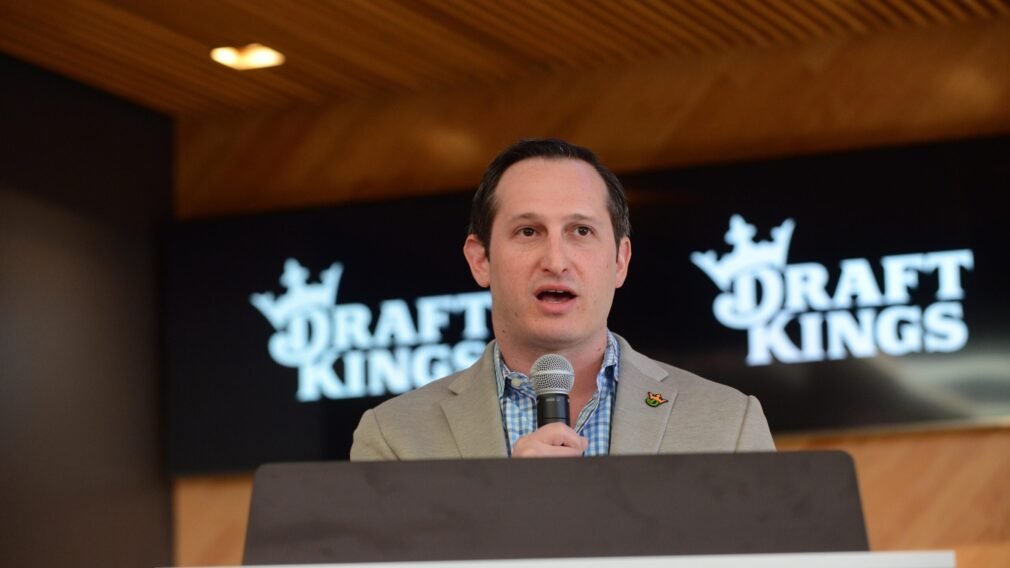DraftKings CEO Sees ‘Significant’ Opportunity in Prediction Markets, But Only in Non-Betting States
DraftKings CEO Jason Robins sees a “very significant” market opportunity in the emerging world of prediction markets, but he believes that opportunity is largely confined to states that have not yet legalized traditional online sports betting. Speaking at the Bank of America Gaming, Lodging & Leisure Conference, Robins laid out a nuanced view of the new sector, suggesting that where sports betting is already legal and established, prediction markets will likely remain a “fairly small” niche.

A Tale of Two Markets
Robins’s analysis of the total addressable market (TAM) for prediction markets is a simple one, based on a clear dividing line.
“I think the TAM opportunity is likely to be very significant in states that do not have legal online sports betting,” he said. “And I think it is likely to be fairly small in states that do have online sports betting.”
He offered two key reasons for this assessment. First, he pointed to the United Kingdom, a mature market where traditional betting and prediction-style exchanges have coexisted for years. In the UK, he noted, prediction markets account for only a “single-digit percentage of the total revenue,” a clear indication that when both products are available, “customers overwhelmingly prefer the traditional online sports betting product.”
Second, Robins argued that the product offering in a prediction market will likely never be as rich or as varied as what is available on a traditional sportsbook, primarily due to the differences in risk management.
“When you are putting as a market maker, a market up on an exchange, you just have to be comfortable with anyone taking that liquidity,” he explained. In contrast, traditional sportsbooks are “able to place limits on Sharps and other people,” which is the “only reason we’re able to offer the variety of bets and things that we can.”
A Cautious Approach to a “Fast-Moving Space”
While Robins sees a clear opportunity, he also signaled that DraftKings will take a cautious and deliberate approach to entering the market. The company has been “actively exploring” the space and has a pending application to join the National Futures Association, a key first step. However, Robins made it clear that the company is in no rush to make a move.
“We’ve always kind of been…of the mindset that why make an announcement before you have to on anything,” he said. “We have to make sure we have the right thing and we are prepared to do it. And when that happens, if that happens, we’ll announce something.”
This patient strategy reflects the significant regulatory uncertainty that still surrounds the industry, as well as the complexity of building or acquiring the necessary technology and regulatory framework to operate these financial-instrument-style products.
A Relentless Focus on the Core Business
While prediction markets are a key area of strategic focus, the core of Robins’s message was a relentless emphasis on the fundamentals of the existing DraftKings business. He repeatedly stated that the company’s primary goal is to increase “gross profit per customer” and the long-term “lifetime value” (LTV) of its players.
To achieve this, the company is focused on two key product areas for the upcoming NFL season: driving a higher mix of parlays and growing its live betting business. New features like “Stacks,” a narrative-driven parlay builder, and “Ghost Leg,” a promotion that turns some one-leg parlay losses into cash wins, are designed to drive parlay adoption.
On the live betting front, the company is investing heavily in machine learning to “move at the speed of sports,” more effectively surfacing relevant in-game wagers to users.
The Transformative Power of AI
Perhaps the most significant long-term driver of profitability, according to Robins, will be the transformative impact of artificial intelligence. He expressed immense enthusiasm for AI’s potential to control fixed costs and drive efficiency across the entire company.
“I think AI is transforming the way that we are going to potentially need or not need to grow our fixed costs,” he said.
He revealed that the company’s CFO has implemented a new policy: “you can’t hire anybody next year unless you’ve already proven you can’t do the same job with an AI agent.” This mindset shift is already leading to a rapid conversion of manual processes to “agent-driven processes” in areas like customer service.
Recommended
